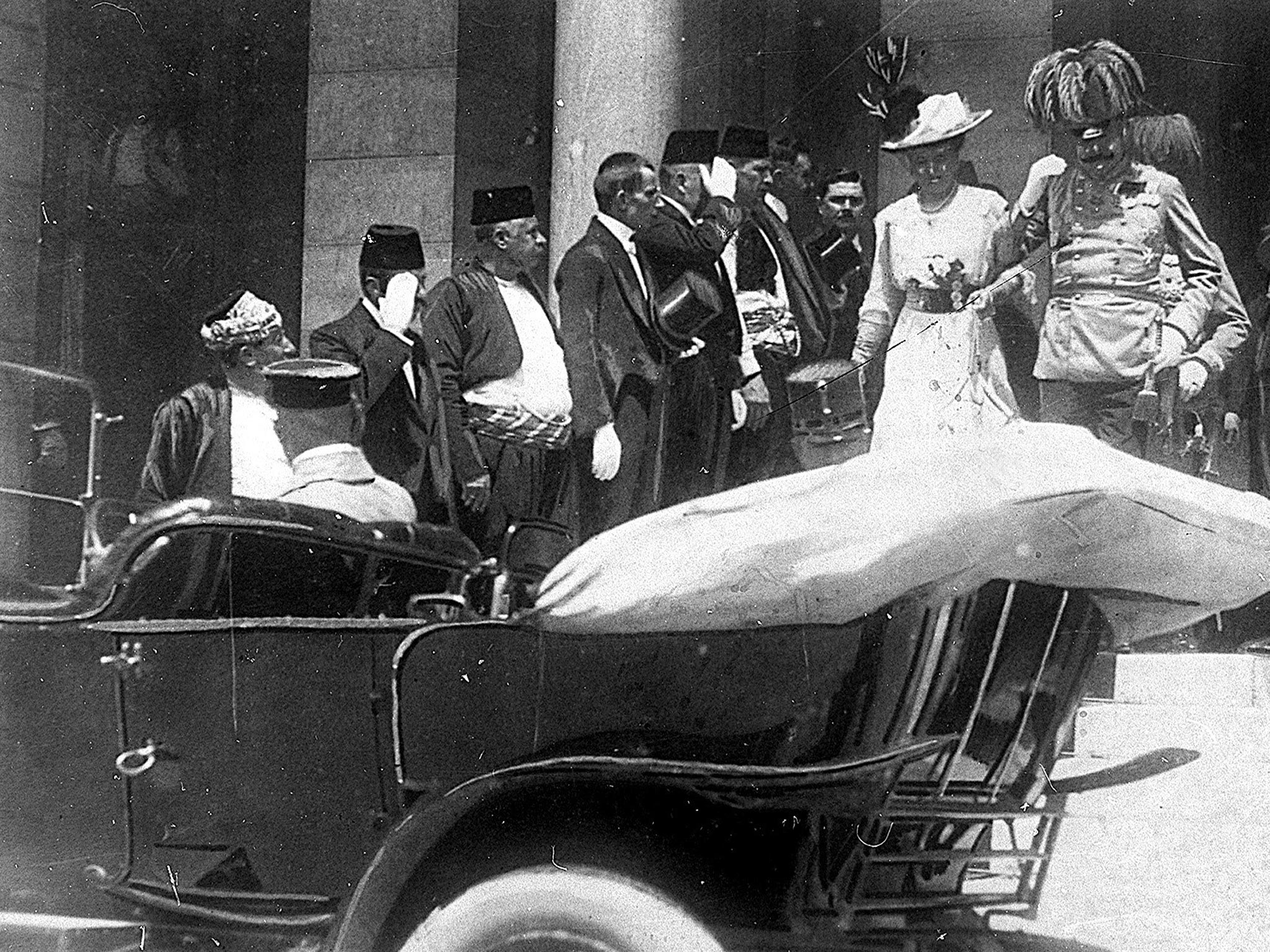Franz Ferdinand assassination continues to divide as Sarajevo remembers shooting
The Serbian Government did not attend ceremonies in Bosnia

Your support helps us to tell the story
From reproductive rights to climate change to Big Tech, The Independent is on the ground when the story is developing. Whether it's investigating the financials of Elon Musk's pro-Trump PAC or producing our latest documentary, 'The A Word', which shines a light on the American women fighting for reproductive rights, we know how important it is to parse out the facts from the messaging.
At such a critical moment in US history, we need reporters on the ground. Your donation allows us to keep sending journalists to speak to both sides of the story.
The Independent is trusted by Americans across the entire political spectrum. And unlike many other quality news outlets, we choose not to lock Americans out of our reporting and analysis with paywalls. We believe quality journalism should be available to everyone, paid for by those who can afford it.
Your support makes all the difference.The assassination of Archduke Franz Ferdinand continues to deeply divide Sarajevo, 100 years after the shooting that sparked the First World War.
The city marked the event with a concert by the Vienna Philharmonic orchestra and commemorations for the heir to the Austro-Hungarian throne and the consequences of his murder.
But the leaders of Serbia and Bosnian Serbs, who consider the assassin a hero, are boycotting the Sarajevo events and see them as attempt to link the First World War and Yugoslav Wars, putting the blame on them.
Instead, they planned to re-enact the murder and Gavrilo Princip's trial in Visegrad, seared into the memory of Muslim Bosniaks for a wave of ethnic cleansing during the 1992-95 war.
The concert’s location, in Sarajevo’s restored City Hall, known as Vijecnica, has its own link with conflict, being where Archduke Ferdinand attended a reception shortly before his murder and having been destroyed by a bombardment by Bosnian Serb forces in 1992, when 2 million books in the national library perished.
The building bears a plaque condemning the “Serb criminals” who fired the shells – a message that Serbian Prime Minister Aleksandar Vucic said prevented him from attending.
Asked about the significance of a Vienna orchestra marking the event, the orchestra’s conductor Franz Welser-Most said the message was “never again”.
“You should not deny the burden of history,” he added.
Leaders of the 28-member European Union marked the centennial on Thursday in Ypres, in Belgium, which was at the centre of bloody trench battles in the First World War.
The anniversary of Archduke Ferdinand’s assassination has taken on a more contemporary message for some, with French philosopher Bernard Henri Levy premiering his play, “Hotel Europe” in Sarajevo on Friday.
It ended with a petition calling for Bosnia's admission to the EU.

Europe “is a place where populism and nationalism are on the rise”, said Levy, who lobbied for Western intervention to end the war in Bosnia. It came too late for the 100,000 killed.
On Friday, Serbs in Bosnia unveiled a statue of Princip in East Sarajevo. They have rebuilt his family home, which was destroyed during the Bosnian War.
Many Serbs see Princip as a freedom fighter not just for Orthodox Serbs but for many of Bosnia's Muslim Bosniaks and Catholic Croats too, his shot ending on centuries of imperial occupation of the Balkans.
That was the official narrative for decades under communist Yugoslavia but the collapse of the state shattered perceptions of Princip, whom many Bosniaks and Croats now regard as a Serb nationalist with ambitions that would have lead to the ethnic cleansing of the 1990s.
Join our commenting forum
Join thought-provoking conversations, follow other Independent readers and see their replies
Comments